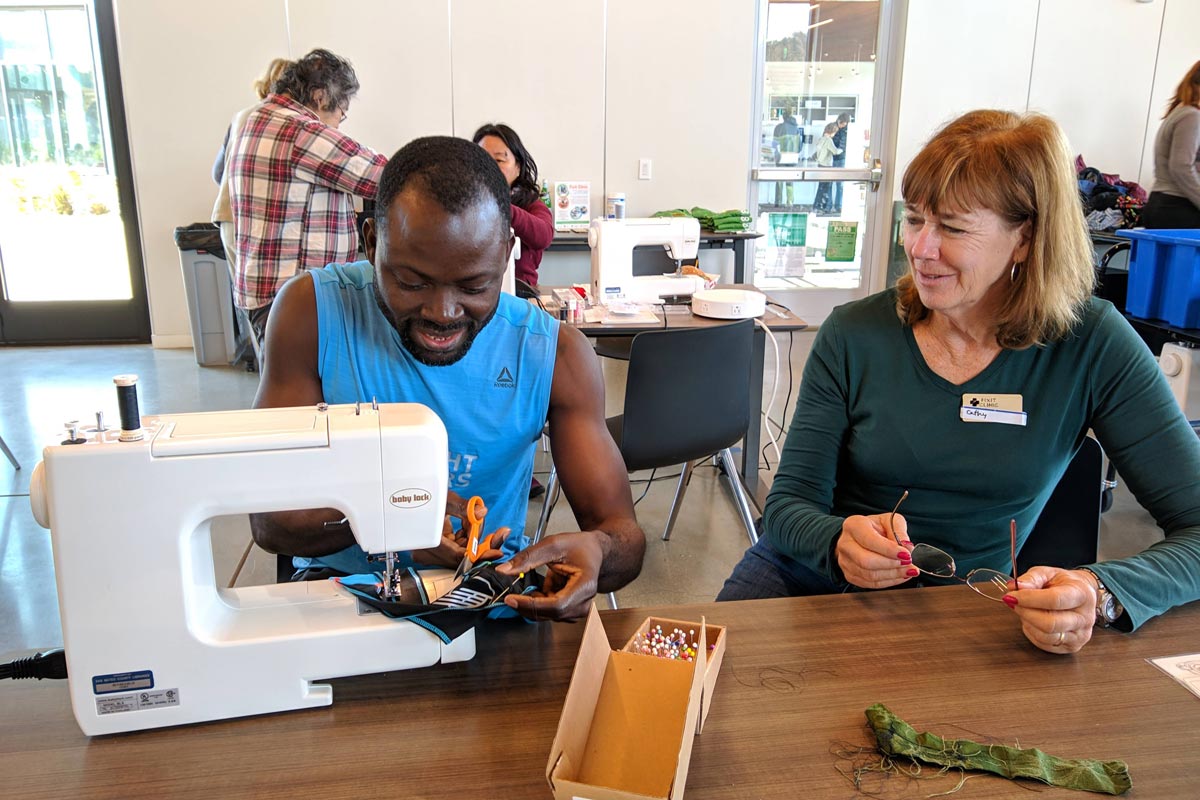
Past Climate Ready SMC Initiative
The Climate Ready SMC was an initiative to help communities understand climate impacts now and in the future. In 2019, Climate Ready launched a study to understand how climate change impacts could affect transportation systems and communities in the county. Funded by Caltrans and led by the Sustainability Department, the study evaluated extreme heat, wildfire, and sea level rise impacts. The project led to the creation of a countywide Climate Ready SMC Collaborative which brought together leaders from across sectors, jurisdictions, and communities to foster collaboration and identify potential solutions to make San Mateo County more resilient to climate impacts.
The initiative used a variety of strategies to understand and plan for climate risks including fostering collaboration through webinars and convenings, development of policy tools, modeling climate impacts, creating outreach materials, investing in culturally competent community engagement, and providing technical assistance, partnership, and resources to resiliency projects. Funded in part by Caltrans, Climate Ready SMC provided competitive grant funds and in-kind support for two pilot city-scale adaptation planning projects:
Past Convenings and Webinars
The Climate Ready SMC Collaborative launch occurred on January 30, 2019. A large and diverse group attended including: Staff and council members from fifteen of twenty cities in San Mateo County, representatives from the North Fair Oaks and Midcoast Community Councils and Pescadero Municipal Advisory Committee, nearly twenty special districts, local and regional agencies, and fifty-five organizations from the non-profit/community-based organization, business, and academic sectors were in attendance.
The Preparing for Wildfire Convening of the Climate Ready SMC Collaborative occurred on March 13, 2019. The working session following the presentations addressed the following areas: evacuation planning, public safety communications, vegetation management, community preparedness and safety net services.
The Moving from Vision to Action Convening occurred on April 30, 2019. The Collaborative discussed the Collaborative First Year Action Plan and the Community Adaptation Planning Pilots project opportunities. Members of the Collaborative also presented on their climate readiness and adaptation efforts.
The Turning the Tide: Connecting for Community Resiliency Convening occurred on June 5, 2019. Presenters addressed combined storms, flooding, and sea level rise risks modeling results and showcased successful projects and best practices for action on sea level rise and flooding preparedness.
The Turning Up the Heat on Community Resiliency Convening occurred on July 31, 2019. The goal of the convening was to bring together stakeholders with a shared interest in rising temperatures and extreme heat risks and preparedness.
The keynote speaker, Molly Peterson, presented a reporter’s perspective on urban heat and health risk, emerging challenges, and potential solutions for communities to explore. Other speakers presented on modeling results of rising temperatures, extreme heat and transportation impacts in San Mateo County and risks to outdoor and agriculture workers and medically vulnerable residents. Alameda County and Contra Costa Counties presented on their heat resilience implementation programs. Attendees then discussed strategies and resource needs to build resilience to heat impacts in San Mateo County.
The Building Health, Economic, and Social Resiliency to Climate Change occurred on September 25, 2019. The goal of the convening was to bring together stakeholders to share the intersection between, and build capacity for, addressing climate change, health, and social vulnerability.
The keynote speaker, Srija Srinivasan, Deputy Chief of San Mateo County Health, presented on root causes of health, prevalence of chronic conditions, and varying physical and emotional effects experienced by San Mateo County residents.
Other speakers presented on how economic, social and health conditions could impact the ability of residents, workers, infrastructure, and businesses to adapt to climate change impacts. Modelling overlay results of vulnerability indicators over newly developed extreme heat, flooding, and wildfire climate scenarios in San Mateo County were also shared with the attendees. Greenlining Institute, Youth United for Community Action, and the California Department of Public Health Office of Health Equity, presented on emerging challenges and potential solutions to explore. Attendees then discussed strategies and resource needs to build health and social resilience in San Mateo County.
The Latest News & Events

22
Fixit Clinics are fun community-based workshops where neighbors, friends, and families work collectively to learn how to repair broken items. We’ll provide a workspace, specialty tools, and volunteer Fixit Coaches to help you troubleshoot and provide routine maintenance to your household items and appliances! Register at https://bit.ly/itemcheckin.
Interested in being a Fixit Coach?
It’s easy! Provide participants with 1) guidance on tools and 2) encouragement to investigate their broken item. Let them talk about how they used it and how it broke. That often provides valuable hints as to what’s wrong. See how much you can do without actually handling the item. Empower the item’s owner to do the troubleshooting and disassembly. Register to be a Fixit Coach here.
This event is hosted in partnership with the San Mateo County Libraries.



